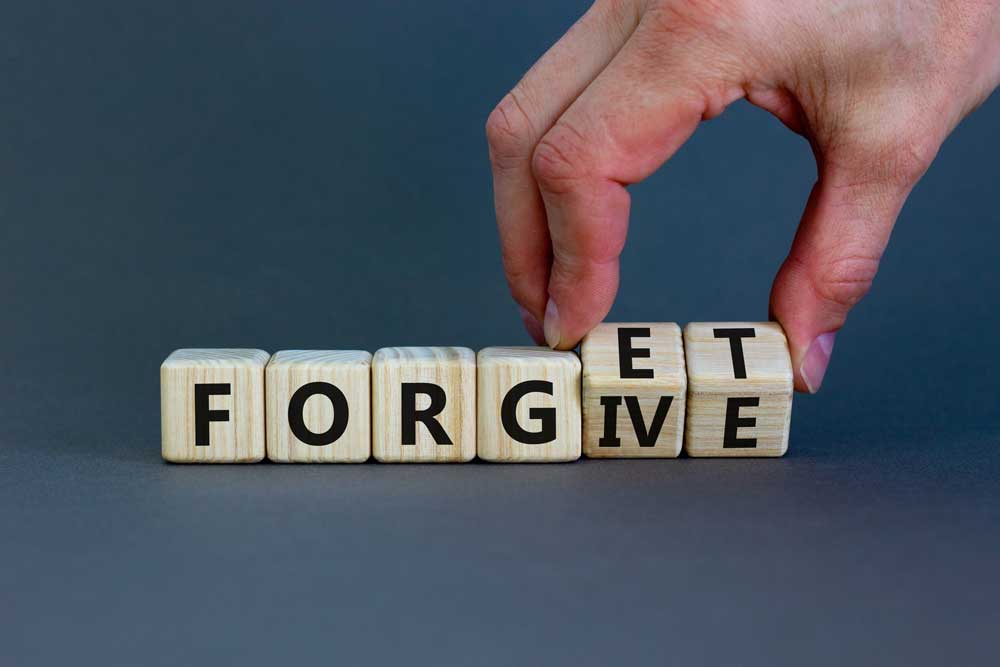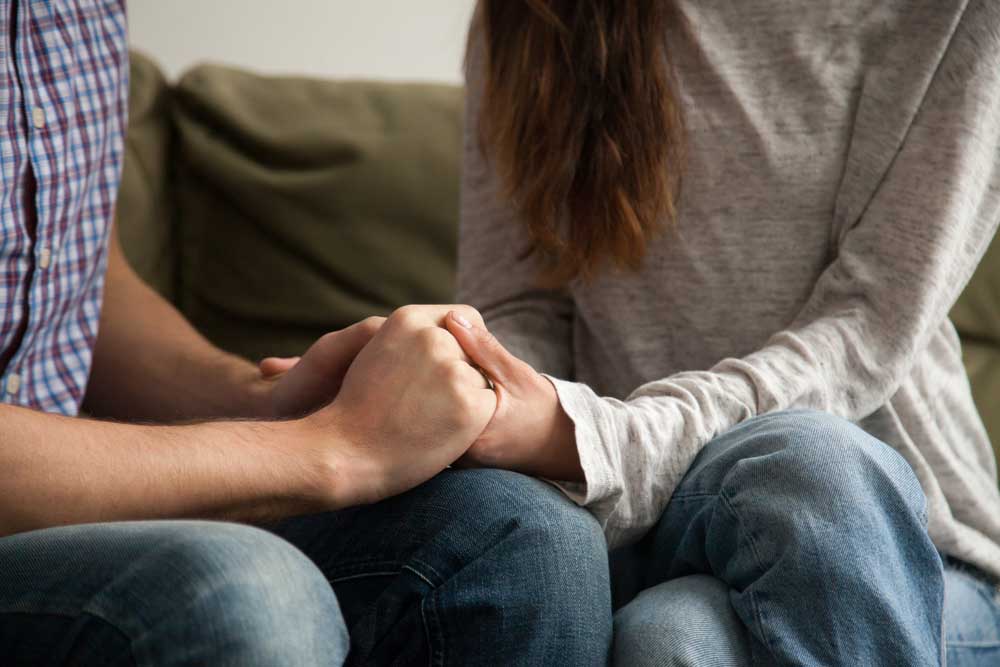Life as we know it, isn’t always smooth sailing. In fact, it can be a series of struggles. Human relations and interactions are complicated with varied dynamics. Navigating relationships with different people can be challenging. Despite being mindful of our social interactions based on the nature of the person and your relationship with them, we are often disappointed or hurt.
However, these negative empotions can sometimes prove to be a heavy burden, restricting us from pursuing happiness. For our own sakes, we must learn to let go.

This brings us to the question, ‘What is forgiveness’? The website Mayoclinic.org defined it saying, ’Forgiveness involves an intentional decision to let go of resentment and anger’.
‘The act that hurt or offended you might always be with you. But working on forgiveness can lessen that act's grip on you. It can help free you from the control of the person who harmed you. Sometimes, forgiveness might even lead to feelings of understanding, empathy and compassion for the one who hurt you. Forgiveness doesn't mean forgetting or excusing the harm done to you. It also doesn't necessarily mean making up with the person who caused the harm. Forgiveness brings a kind of peace that allows you to focus on yourself and helps you go on with life.’
It’s imperative we put the idea of forgiveness into play to ensure our mental well-being.

Here are a few benefits of forgiveness that drastically change your life for the better.
Improved mental health and overall growth: The decision to forgive oneself or others can bring in immense relief and relax the mind. You will feel lighter and happier once you decide to let go.
Healthier relationships with people around you: Once you’re in a better space, you tend to cultivate healthy relationships with family, friends, colleagues and everyone around you.
Increased self-esteem: The When you forgive others and let go of anger, it leads to an increase in self-worth and compassion.
Reduced substance abuse: When you eliminate negative emotions from your system, it results in the reduction of substance abuse naturally and organically.

Let’s also understand the various types of forgiveness:
1. Forgiveness to self - Disregarding or disrespecting oneself by remaining harsh and critical all the time.
2. Forgiveness to others - Letting go of and forgiving others who may have hurt us in various ways. It may seem difficult, but the first step to decide to forgive is important.
3. Supernatural or religious forgiveness – forgiveness from the universe for not being able to do good or be good.
Follow the below steps towards cultivating the quality of forgiveness:
1. Acknowledge and accept whatever happened - Accept that a particular event happened and things weren’t in your control. It's okay to feel emotions of sadness, heartbreak and anger. After all, we are human.
2. Consider the other person’s perspective - Whether it seems reasonable or not, it’s important to put oneself in the other party’s shoes and attempt to gauge their state of mind and circumstances that might have led to the adverse situation.
3. Determine your boundaries - Every experience teaches us something good. Learn from what has happened, and establish your boundaries going forward.
4. Repair (if possible) - Think deeply and decide if it is possible to make amends with the people you have differences with. Even if you cannot do that, talk it out and achieve closure at the very least. This will give you a deep sense of relief.
5. Choose affirmations, journaling or meditation - Once you put pen to paper or seek inner peace, it is easier to forgive.
In the end, your goal is to achieve joy and peace-of-mind, to feel relieved and liberated. The act of forgiveness will help you get there.